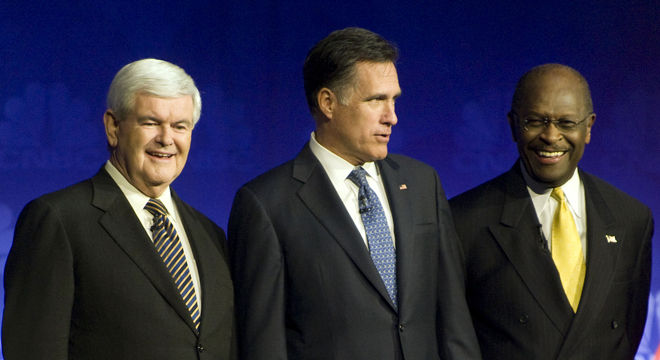And then there was Newt.
When Texas Gov. Rick Perry knocked former Mass. Gov. Mitt Romney from his frontrunner status, it was no shock. But when Perry fell from grace to the single digits, replacing him with businessman Herman Cain seemed odd, as Cain had been a candidate since early spring. But it was a clear signal that a non-Romney contingent had been fortified, and was turning their eye toward another candidate.
Now that this block of the Republican electorate has moved on to former House Speaker Gingrich, the candidate who has the most political experience in the Republican field, it didn’t take long for the hot glare of frontrunner-status to head his way. The latest: allegations of hypocrisy to the tune of the $1.6 million he was paid by Freddie Mac, an organization he’s been all too happy to slam.
So when it comes to Gingrich, we may be looking at the shortest wave yet, due to a few factors. Newt has an immense amount of political baggage in addition to the Feddie flap, and, as TPM has reported, he is simply not liked by many voters in either general samples or the GOP.
Check out the TPM data on the Republican race over the last year or so. After Romney’s fall, Perry enjoyed a month-long plateau at the top. For a few weeks it was then a small mountain for Mr. Cain. And now that Gingrich has taken the lead, his time may literally be a spike.
Republican Presidential Primary, Nationwide
Why? Sure, Republicans are trying to find some way to nominate someone besides Romney, and there’s no perfect candidate to do that. But here’s a theory as to the shortening surges: as Republicans moved from their weak frontrunner to the next choice and on down the line, they are really evaluating notches on a regressive scale. They seem to be quicker to turn out a rejection because these are the third and fourth options at this point, and surprise, they aren’t very appealing.









